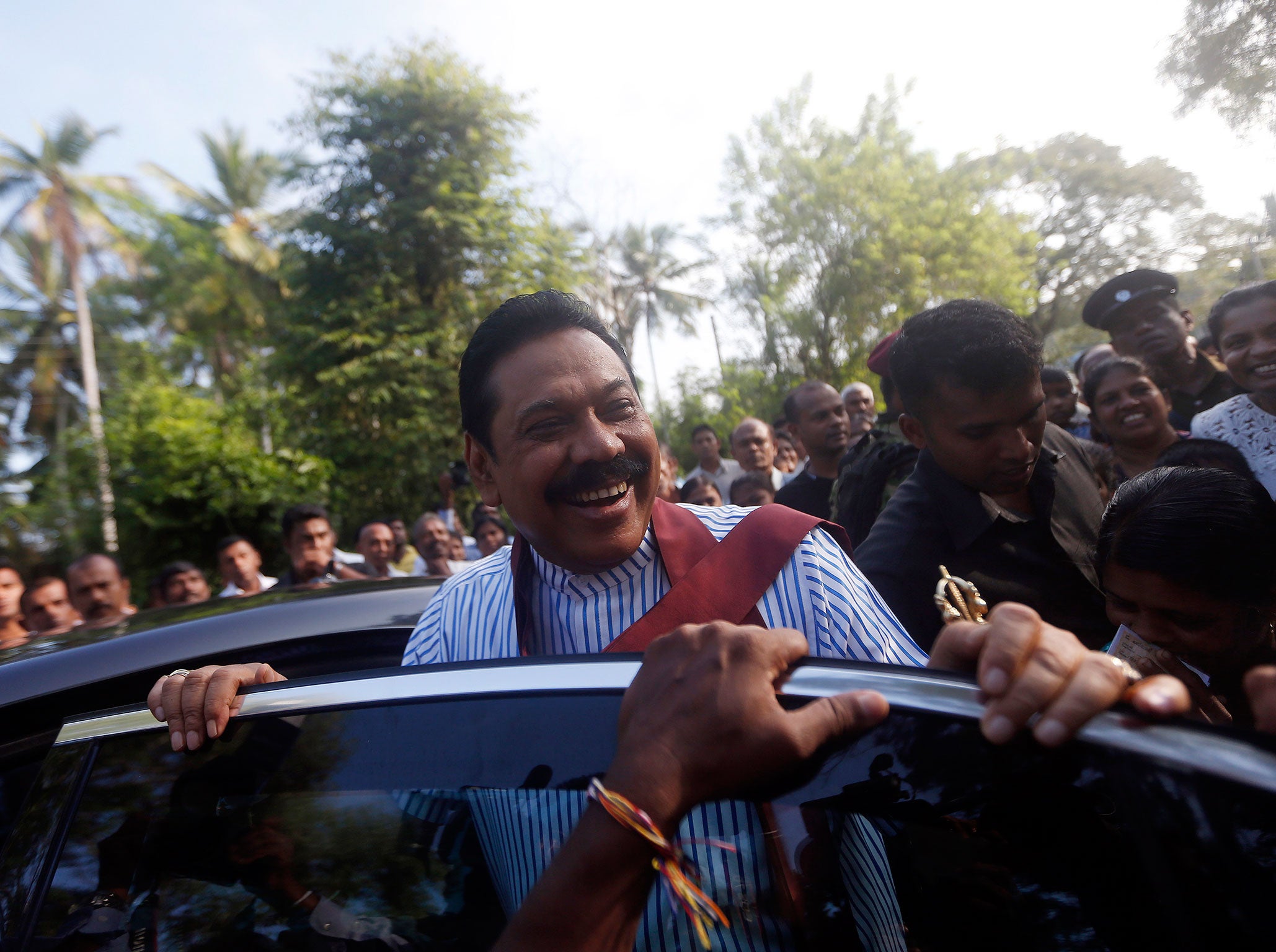Your support helps us to tell the story
From reproductive rights to climate change to Big Tech, The Independent is on the ground when the story is developing. Whether it's investigating the financials of Elon Musk's pro-Trump PAC or producing our latest documentary, 'The A Word', which shines a light on the American women fighting for reproductive rights, we know how important it is to parse out the facts from the messaging.
At such a critical moment in US history, we need reporters on the ground. Your donation allows us to keep sending journalists to speak to both sides of the story.
The Independent is trusted by Americans across the entire political spectrum. And unlike many other quality news outlets, we choose not to lock Americans out of our reporting and analysis with paywalls. We believe quality journalism should be available to everyone, paid for by those who can afford it.
Your support makes all the difference.Sri Lankan President Mahinda Rajapaksa conceded defeat to his opposition challenger on Friday after a presidential election, ending a decade of rule that critics say had become increasingly authoritarian and marred by nepotism and corruption.
“We don't have any good news. It is all bad news,” said a senior government official and close ally of Mr Rajapaksa as the results came in from Thursday's election on this Indian Ocean island of 21 million people. “I think people need a change and this is democracy.”
Celebratory firecrackers could be heard exploding in the capital, Colombo, after the president's office said Mr Rajapaksa had met a leader of the opposition to accept the victory of his challenger, Mithripala Sirisena. There was no sign of protests or a major mobilisation of security forces.
Mr Sirisena, a former government minister who deserted the president and changed sides to become the opposition's candidate in November, has vowed to root out corruption and bring constitutional reforms to weaken the power of the presidency.
Seeking an unprecedented third term, Mr Rajapaksa called the election two years early, confident that - despite his waning popularity - the fractured opposition would fail to find a credible candidate.
But he did not anticipate the emergence of Mr Sirisena, who dined with him one evening and turned on him the next day.
The Department of Elections said that of 3.26 million votes counted so far, Mr Sirisena had taken 51.3 percent and Mr Rajapaksa was trailing on 46.9 percent. Other candidates accounted for the rest of the votes cast by an electorate of around 15 million.
Presidential coordinator Wijayananda Herath said Mr Rajapaksa met Ranil Wickremesinghe, who will be prime minister under the new president, to concede defeat and asked him to “facilitate a smooth transition”.
Mr Sirisena is expected to be sworn in later on Friday.
Mr Rajapaksa won handsomely in the last election in 2010, surfing a wave of popularity months after the defeat of ethnic Tamil separatists who had waged a crippling war against the state for decades. But critics say he had become increasingly authoritarian since becoming president, with several members of his family holding key positions of power.
The early results showed Mr Rajapaksa remained popular among the country's Sinhala Buddhists, who account for around 70 percent of the population, but Mr Sirisena took his lead from the ethnic Tamil-dominated former war zone in the north of the country and Muslims-dominated areas.
Mr Sirisena is set to lead a potentially fractious coalition of ethnic, religious, Marxist and centre-right parties. He has pledged to abolish the executive presidency that gave Mr Rajapaksa unprecedented power and hold a fresh parliamentary election within 100 days.
He has also promised a crackdown on corruption, which would include investigations into big infrastructure projects such as a $1.5 billion deal with China Communications Construction Co Ltd to build a port city.
Reuters

Join our commenting forum
Join thought-provoking conversations, follow other Independent readers and see their replies
Comments